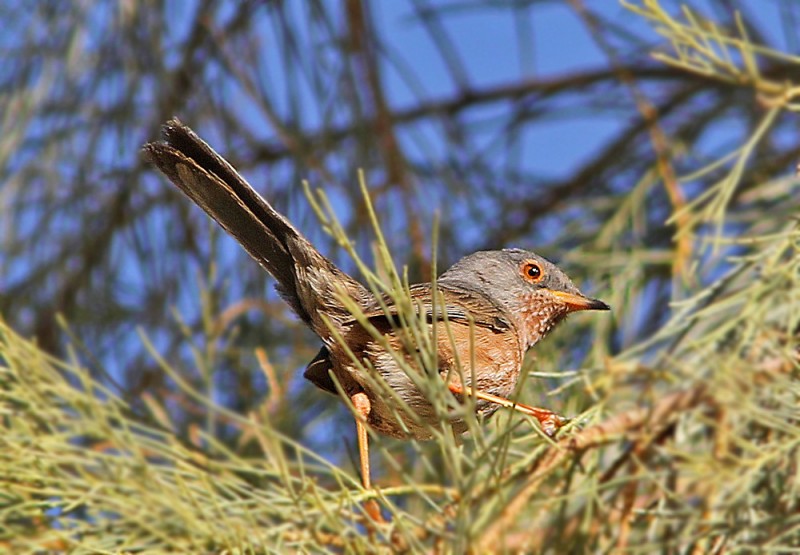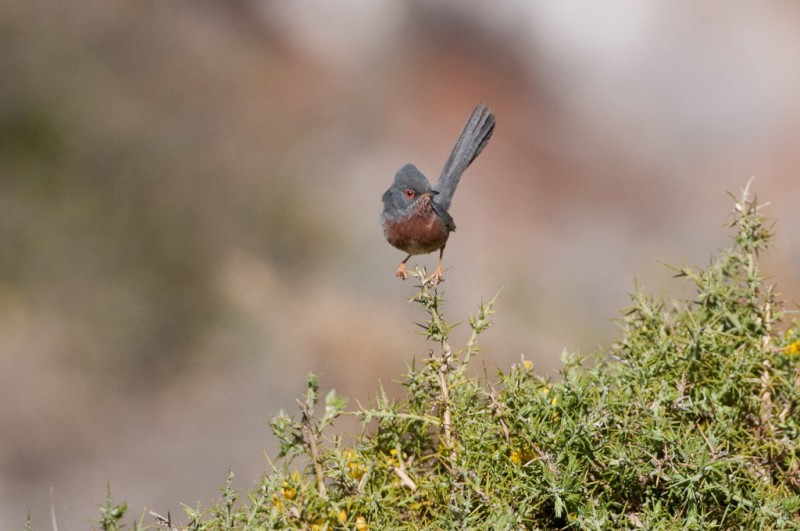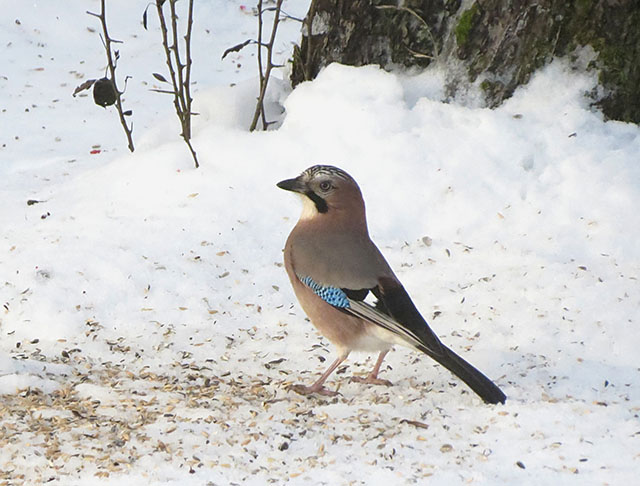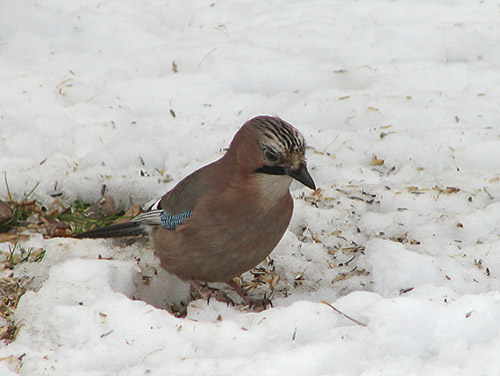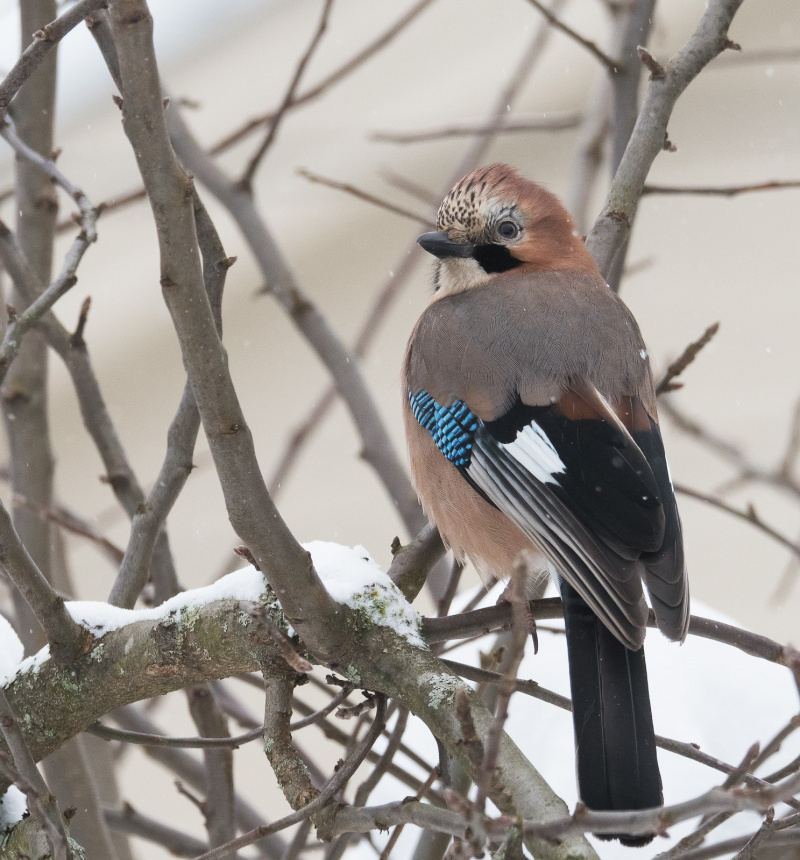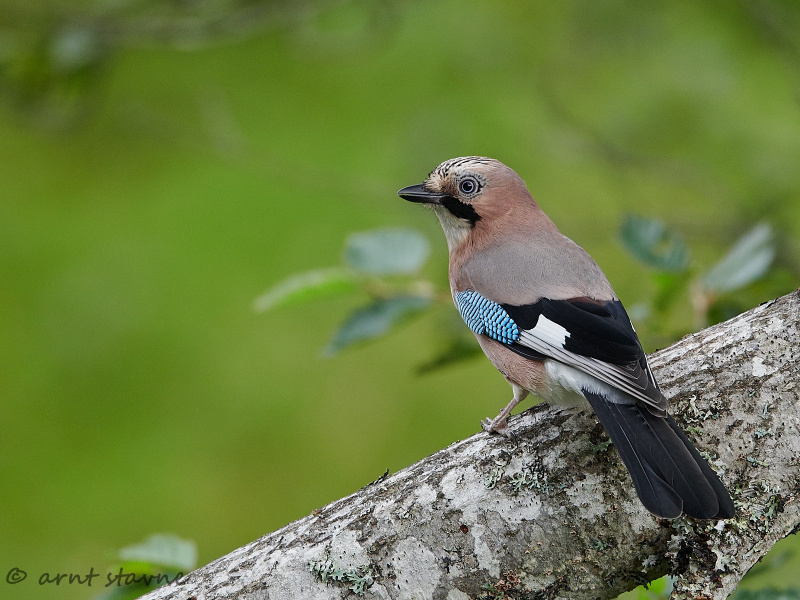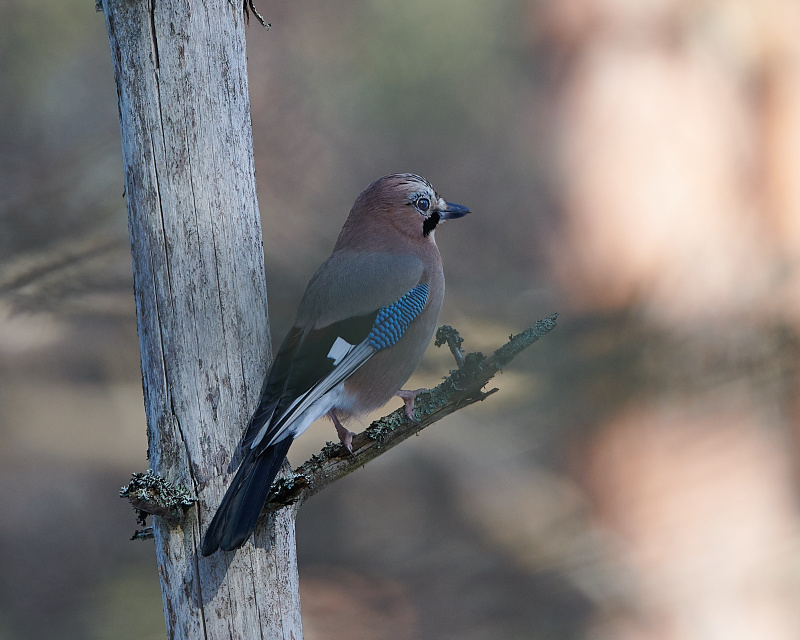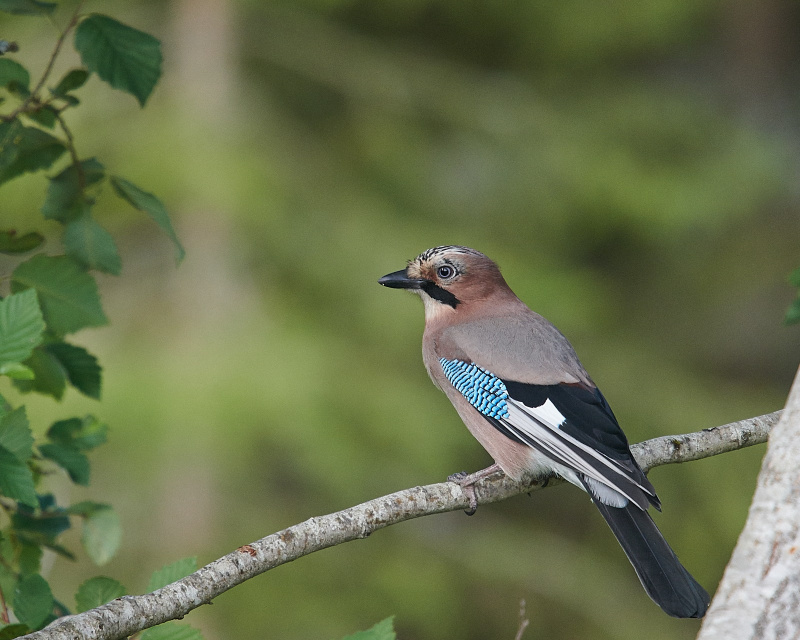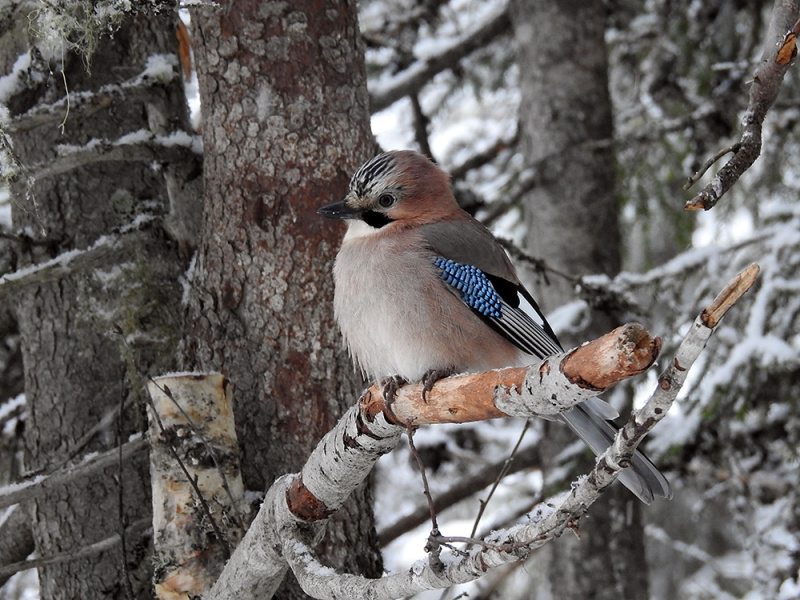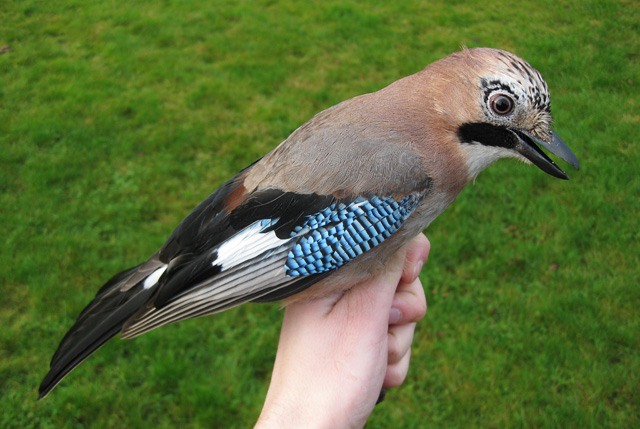Dartford Warbler (Curruca undata)
Jay (Garrulus glandarius)
Small and slender Sylvia about the size of Lesser Whitethroat. The short wings, steep forehead and striking long tail alone is often enough for positive id. Upperparts dark slate grey, and underparts of male vinous red with finely white spotted throat. Female less brightly coloured with more brownish tones and less red underparts. Immature duller still, with brownish underparts rather than red. Yellow base of lower mandible in all ages and sex. Lacks the white moustache-stripe of Subalpine Warbler. Tail frequently held raised. Skulking behaviour. Prefers scrubs/Gorse and is usually only glimpsed when moving low from bush to bush, or when singing from more exposed perch.
Sound:Contact call a diagnostic, very nasal "chirr", quite different from other Sylvia, and used freely. Warning call a har "tuc". Song similar to Sardinian Warbler, but usually identifiable by frequently interspersed contact calls. Phrases are quite short, and pauses are as long or longer than the actual phrases. Each phrase typicall starts and ends with a more tonal segment than the regular chattering.
Song (with contact call):
Distribution:
Xeno-canto: map
Ecology:Birdlife ecology
Links:
Observation.org Latest observations
Image search Flickr NB! May give other species
CCCC-Photo:Marc Kolkman, Licence,Link.
CC-sound:Peter Boesman, Licence,Link.
CC-photo:chausinho, Licence,Link.
Largely unmistakable. Pale pinkish brown. Wings dark with white and blue patches. Tail black and rump white (conspicuous in flight). Crown speckled in black. Striking black moustache stripe. Flight pattern straight and fluttering like Nutcracker, but tail longer and bill shorter.
Sound:Large repertoire. Most heard call a short, drawn and very hoarse, raspy sound, often given in quick successions. Also a Buzzard-like, mewing "peeeaaa" (more drawn and less full tone than Siberian Jay). Quiet and varied subsong with mimicry, resembling a small passerine heard from both sexes. Many other social sounds.
Alarm:
Distribution:
Wikipedia: map (se also Xeno-canto below)
Ecology:Birdlife ecology
Links:
Observation.org Latest observations
Image search Flickr NB! May give other species
CC
 English
English Albanian
Albanian
 Armenian
Armenian
 Bulgarian
Bulgarian
 Catalan
Catalan
 Croatian
Croatian
 Czech
Czech
 Danish
Danish
 Dutch
Dutch
 Finnish
Finnish
 French
French
 Georgian
Georgian
 German
German
 Greek
Greek
 Hungarian
Hungarian
 Italian
Italian
 Latvian
Latvian
 Lithuanian
Lithuanian
 Macedonian
Macedonian
 Norwegian
Norwegian
 Polish
Polish
 Portuguese
Portuguese
 Romanian
Romanian
 Russian
Russian
 Sami : Lule sami
Sami : Lule sami
 Sami : North sami
Sami : North sami
 Sami : South sami
Sami : South sami
 Scientific names
Scientific names
 Serbian
Serbian
 Spanish
Spanish
 Swedish
Swedish
 Ukrainian
Ukrainian


